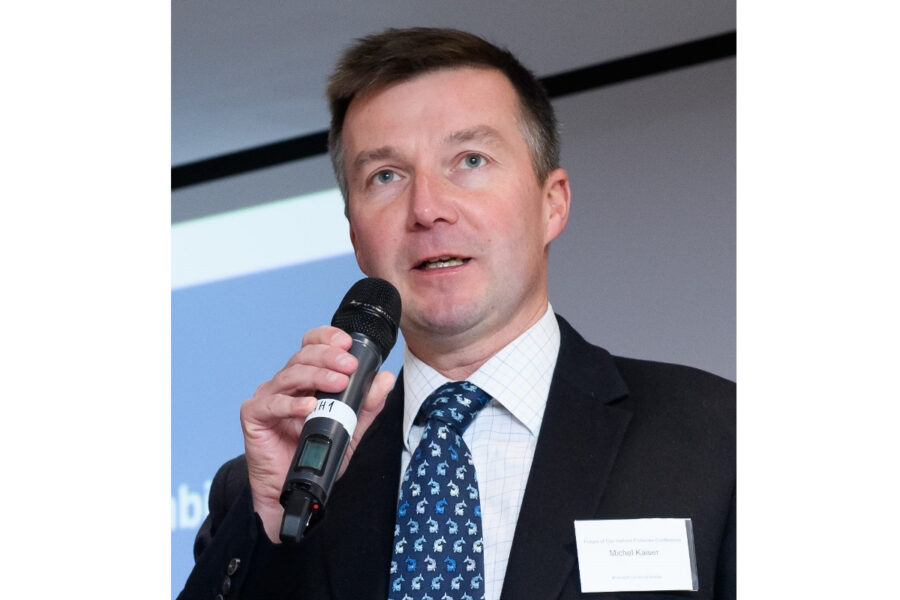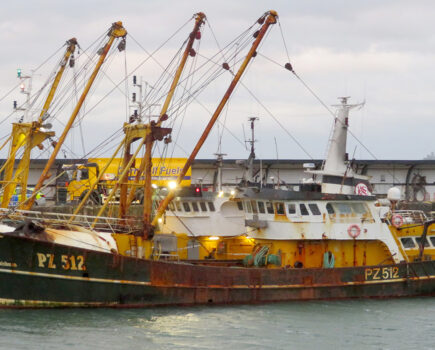FOIF sets out action plan for UK inshore fisheries
Active fishermen on steering group
Fishermen will be centrally involved in an action plan to fundamentally reform the management of UK inshore fisheries, reports Tim Oliver.
The Future of Our Inshore Fisheries (FOIF) project has announced a wide-ranging action plan to take forward the groundbreaking development.
The action plan follows the report on the two-day conference held in October last year. It is based around five themes that reflect the priorities identified by attendees at the conference, and which will shape future work. These were:
- Co-management
- Collaborative science
- Credible fisheries management
- Rights and access
- Effective compliance
The action plan sets out ‘clear, deliverable actions’ across these themes which the project will progress over the next 12-18 months, said Professor Michel Kaiser, chairman of the project’s steering group, which includes six active fishermen from around the UK.

Professor Michel Kaiser, chairman of the FOIF action plan steering group: “The plan sets out clear, deliverable actions.”
He said: “The action plan is wide-ranging, reflecting the complex nature of the task ahead of us. It includes a series of pilot studies which will be used to develop, test and refine various potential solutions, to see what will work best for UK fisheries.”
He said he was ‘very pleased’ that active inshore fishermen are now represented on the steering group and ‘have taken on this vital role to steer the project at a strategic level’.
The fishermen are Aubrey Banfield (Dorset), Ned Clark (North Shields), Joel Dunn (Plymouth), Alasdair Hughson (Kyleakin), Brackan Pearce (Newlyn) and Len Walters (Cardigan).
“I firmly believe that it was having active fishermen in the room with their experience and expertise that made the conference such a success,” said Michel Kaiser.
“This is the ethos we will continue every step of the way as we progress the project, making sure that there are plenty of opportunities for inshore fishermen to directly inform the work and outcomes.”
He noted that in a recent editorial on the publication of the conference report and action plan, Fishing News wrote: “This report must not be allowed to simply lie gathering dust on a shelf like so many others. Maintaining momentum is vital, regardless of the Covid-19 pandemic that has brought so much of normal life to a halt.”
“I could not agree more with this sentiment,” said the steering group chair. “While this is doubtlessly a challenging period, and the impact of Covid-19 has slowed us down, too often reasons have been found not to start this work. With industry and government collaborating, we have an opportunity to get this right now.”
He recognised – as does the conference report – that the scale of change which is needed is significant.
“Transforming how our inshore fisheries are managed will not be easy. It will take time, and there may well be mistakes along the way. But the long-term aim to deliver a management regime under which we see a viable and profitable inshore fishing industry – which supports flourishing coastal communities – is worthy of all of our efforts.”
The action plan points out that co-management is a constant theme through the FOIF work programme, as it is also throughout the work of the newly established Shellfish Industry Advisory Group (SIAG) and whelk/crab management groups.
The steering group will aim to pilot the application of the co-management principle using case studies provided by these groups.
On the issue of rights and access to fisheries, the action plan says that the key to successful fisheries management is limiting fishing effort in line with stock sustainability. A priority task will be to explore the feasibility of community quota ownership schemes that will be tested with a series of local pilots.
The two-day Future of Our Inshore Fisheries conference was held in October last year. The report on the conference includes summaries of the speakers’ presentations on various approaches to inshore fisheries management from around the world. It also captures the table discussions where attendees considered how these ideas might apply in a UK context.
It did not make specific recommendations, but identified the five themes that the steering group will now take forward.
Full FOIF action plan – see page 7 of this week’s Fishing News








